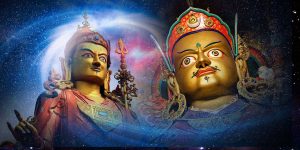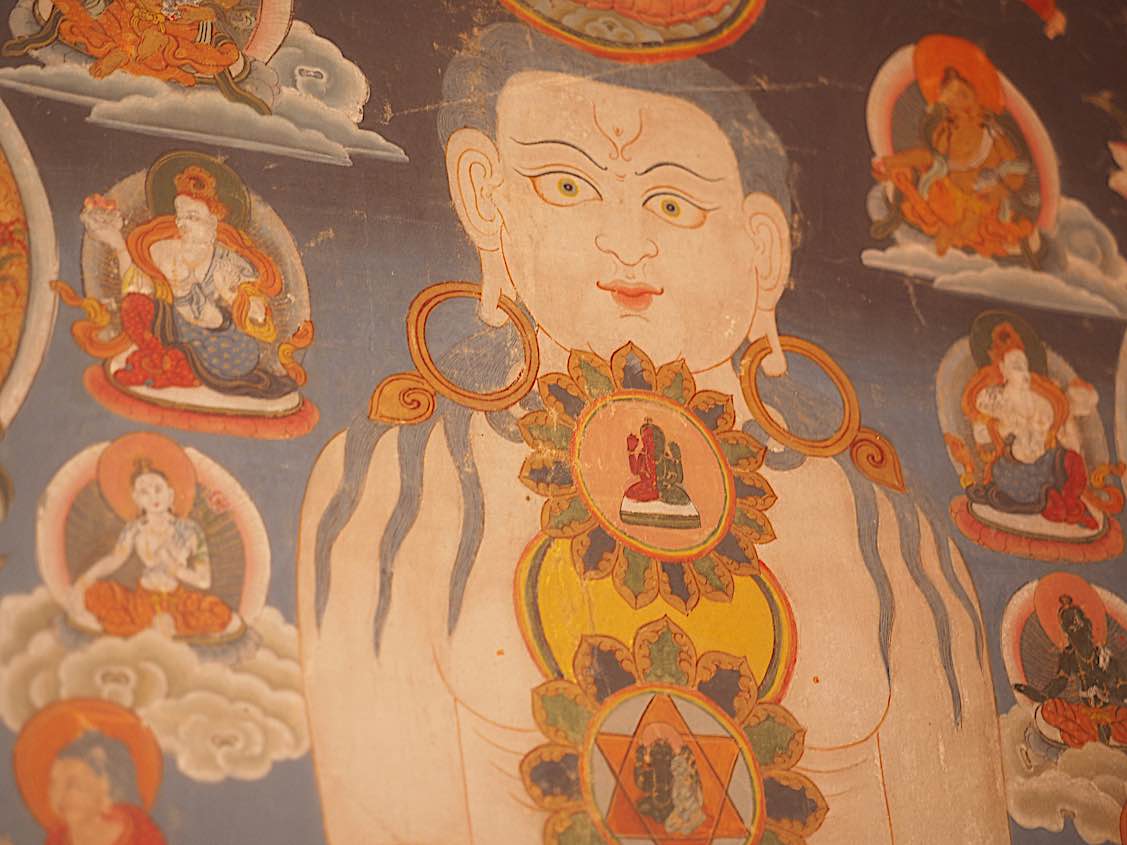Wish-Fulfilling Praise of Padmasambhava chanted beautifully in Sanskrit with Guru Rinpoche mantra
For most Vajrayana Buddhists, the practice of Guru Rinpoche, the Lotus Born Padmasambhava, is the most profound of practices for meditations, and accomplishments. Chanting both the mantra of Padmasambhava, and the 7 lines of praise, is the purest form of practice. Chanting the praise in the original mother language of Sanskrit, rather than a translation such as Tibetan, English or other languages, is considered the most effective. In this video, chant along with Hrishikesh Sonar, the 7 lines of praise in Sanskrit, with the mantra of Padmasambhava, ideally 27 times daily.
In this podcast, chant along with Hrishikesh Sonar, the 7 lines of praise in Sanskrit, with the mantra of Padmasambhava, ideally 27 times daily. We start with a very short introduction and the Praise in English, but you will find the time code to jump ahead in the description. To learn more about Buddha Padmasambhava, see the information icon in the top right.
Any translation of the Sanskrit is a compromise since each syllable in Sanskrit traditionally means many things. Also, the vibrations of the mother language are considered to have sacred power.
In English, the great Dharani praise translates as:
In Oḍiyāna in the North-West
In the heart of a lotus flower
Endowed with the most marvelous attainments
You are renowned as the Lotus Born
Surrounded by many hosts of Dakinis
Following in your footsteps
I pray to you. Come inspire me with your blessing.
This is followed by the mantra.
After 27 repetitions there is a final dedication in Sanskrit.
Chant along with the amazing voice of Hrishikesh Sonar the most sacred wish-fulfilling praise of Guru Rinpoche, the Lotus Born Padmasambhava.
hūṁ | oḍiyāne vāyavye |
padmakesarakāṇḍe |
siddhir labdhātyadbhutā |
khyāta padmasambhava |
bahuḍākībhir āvṛta |
tavaivānusarāmi |
āyāhy adhiṣṭḥānārthaṁ |
guru padma siddhi hūṁ ||
Mantra:
om ah hūṁ vajra guru padma siddhi hūṁ
After 27 Repetitions, dedicate with:
iti gururatnasaptapadaprārthanā ||
This is the prayer to the Precious Guru, in seven sentences.
More articles by this author
Search
Latest Features
Please support the "Spread the Dharma" mission as one of our heroic Dharma Supporting Members, or with a one-time donation.
Please Help Support the “Spread the Dharma” Mission!

Be a part of the noble mission as a supporting member or a patron, or a volunteer contributor of content.
The power of Dharma to help sentient beings, in part, lies in ensuring access to Buddha’s precious Dharma — the mission of Buddha Weekly. We can’t do it without you!
A non-profit association since 2007, Buddha Weekly published many feature articles, videos, and, podcasts. Please consider supporting the mission to preserve and “Spread the Dharma." Your support as either a patron or a supporting member helps defray the high costs of producing quality Dharma content. Thank you! Learn more here, or become one of our super karma heroes on Patreon.
Lee Kane
Author | Buddha Weekly
Lee Kane is the editor of Buddha Weekly, since 2007. His main focuses as a writer are mindfulness techniques, meditation, Dharma and Sutra commentaries, Buddhist practices, international perspectives and traditions, Vajrayana, Mahayana, Zen. He also covers various events.
Lee also contributes as a writer to various other online magazines and blogs.














